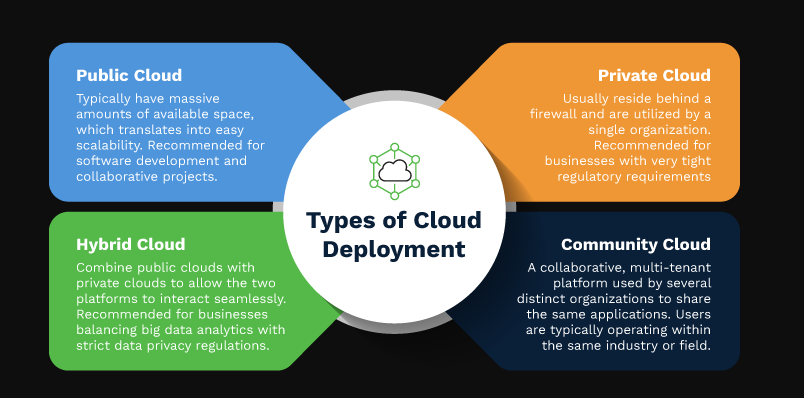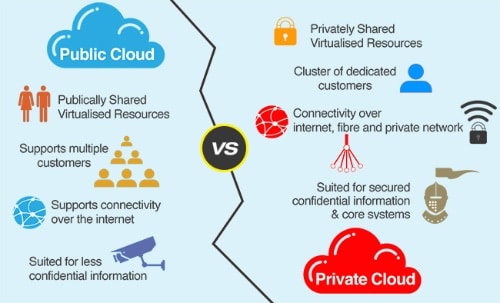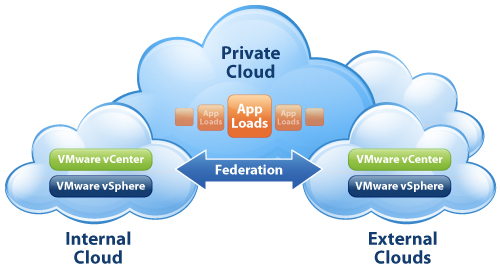Hi, I’m Jalpa Patel and I am a Chief Network Architect with Pakainfo private clouds Website.
What is a private clouds?

This is Last section of cloud computing tutorial. In our previous Article, we discussed what is a public cloud. In this Article, we’ll learn to what is a private clouds, benefits, limitations and use cases, and in our next Article we’ll learn to what is a hybrid cloud. As the name implies, a special cloud is private to one company.
In other words, a private cloud resources and services are used exclusively by one business or company. Unlike public cloud, a special cloud resources are not shared by multiple organizations. All the hardware infrastructure and software are solely dedicated to one company. The personal cloud is physically located on-premise that is at your company’s on-site lots of the data center or it can also be hosted by a third-party service provider. The important point to keep in mind is, a private clouds is individual, that is all the hardware infrastructure and software are solely dedicated to one and only one company in a private cloud.
It’s very easy to customize the hardware and software to meet your company’s specific IT requirements. This is because your company owns everything, that is the hardware, software and network. Therefor, you have complete control and can change anything in any way you want to meet your organization requirements. In general, private clouds are often used by government agencies, financial institutions and any other medium to large sized organizations with business critical operations that want to have enhanced and complete control over their cloud environment.
Benefits of private clouds
- Better security.
- Resources are not shared with other organizations. because there is better security with personal cloud.
- Better control.
- A private clouds belongs to a specific company. because you can customize it to meet your specific business needs.
- Predictable cost.
- With special cloud you own all the cloud infrastructure and you’re not paying any third party cloud service provider.

limitations and use cases
because your monthly cooling, energy and maintenance costs are usually predictable.
Legal compliance. When you deal with regulated lots of the data, for example financial, health care or credit card lots of the data, there are strict rules around where the data is stored, who can handle and process it and how it is protected. With the private clouds, you know where your lots of the data center is located. because you know where the data is stored and how exactly it is protected. And then, let’s look at the limitations. With special cloud we have limited scalability.
The extent to which you can scale up in a private cloud is limited by the amount of infrastructure you have. Beyond certain point you cannot scale up. because the infrastructure is a limiting factor and you may not be able to scale up at will like in the public cloud. Huge initial capital expenditure. With the personal cloud you have to procure all the cloud infrastructure, hire the workforce to set up and maintain the cloud. because a special cloud is an expensive solution compared to public cloud alternatives, especially for short-term projects. Limited access. A private cloud is usually more secure.

We use it for security sensitive applications, because of these high security measures in place mobile users may have limited access to the private clouds outside of the corporate network. When to use a private clouds? Well, a special cloud is best suited for highly regulated businesses like financial and healthcare institutions. Tech companies that require robust security and complete control over the cloud infrastructure also benefit from the personal cloud. Large organizations that require advanced as well as custom lots of the data center solutions also benefit from individual cloud. In our next article, we’ll learn to hybrid cloud. That’s it in this article. Thank you for Reading.
Do you know what “VPC” means? – and why it even matters to you in your public cloud journey? Well, today I’m going break it down.
What is a Virtual Private Cloud?
VPC, or “Virtual Private Clouds”, is a public cloud capability that provides you the ability to define and then control isolated virtual networks and then deploy cloud resources into those networks.
So, what is a virtual network? Well, to help you understand that, let me first help you understand how we would deploy networks in a standard public cloud. An administrator is going to find a backbone, now that backbone is going to carry all the traffic in that cloud. There’s going to be some segmentation on that backbone to create a separation between one client and another client. Or let’s even say separation between one application and another application within that same client.
So, now that we have that segmentation, wended a network function that will actually allow us to have communication between those segments. A network function we’re going to call router. So, now that we have communication between these segments I might choose to say I don’t want traffic to flow between this segment and that segment.
Let’s say because this is customer A and thesis customer B. So, now I have a firewall function that provides us with filtering capabilities. So, now I have my cloud defined, it’s completely isolated, it’s not connected to the rest of the world, but I required internet connectivity because I’m hosting web application here. So, now I required a network function that can provide me with NAT-ing.
In addition, I required to extend my enterprise. Or I have applications here that required to communicate and get data from my enterprise on site. So, I’m going to build a VPN function. So, in a traditional cloud environment most of all these network functions are actually done with appliances. There done with appliances that require infrastructure administrators, or network administrators to log into them using proprietary interface to define all these flows and controls. If you look at virtual networking, however we introduce all of these capabilities as a service.
For which in case, we introduce all these capabilities to the user where they can now create these functions and create this isolation and the segmentation with a UI or CLI or API. So, they might be able to say I want four of these networks, and I want to find my own custom segmentation for this application for that application. Now I want to have connectivity to my enterprise, I provision a VPN service to get connectivity to the internet instead of having to configureNAT-ing I provided, I provision a service to be able to be able to give me that ability.
So, now the user has this control and they didn’t required to know any proprietary interfaces to make these connections are defined these flows, and since each of these are networks, they are completely isolated with each other. They don’t have connectivity between each network until I say so. So, let’s talk about a few the benefits.
Now you understand where the virtual network comes into play and how that actually contributes to the private piece of V. P. C. So, some of the benefits are because now Icon get all these all these functions and I have isolation built in I have some security aspects. In addition, since these are not appliances and actually provided has a capability of the cloud, I can do all of this at scale. Again, developers required things that are customizable right. So, the aspect of being able to find the segmentation and say I want four, five, or six, or tear it all down and come back tomorrow to do it again, I required some aspects of customizing this environment.
In addition, it’s flexible enough to allow the user to be able to say I required to be able to add virtual segmentation later on down the road, or I required connectivity to the enterprise down the road.
So, these two attributes here actually allow the developers to become more agile which hopefully is going to save you some money. So, now you understand what virtual private clouds is and why it matters to you. We hope you like this Article on VPC.